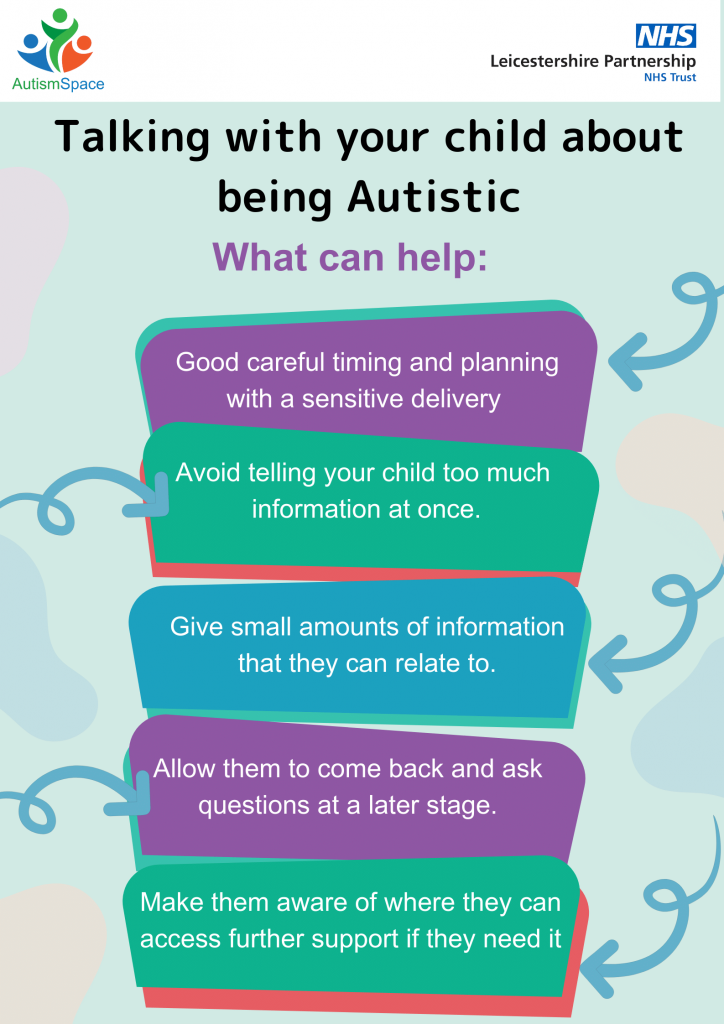Different things work for different children depending on their emotional maturity, social awareness, and ability to process the information.
Be aware that when you are ready to explain the diagnosis your child might not be ready, or able to understand or they may struggle to accept it. If that is the situation leave it, as you can always come back to the conversation another time.
For your autistic child to have a life where they are happy and successful in what they choose to do, it will help them if they know what autism is and how it affects an autistics person’s thinking and behaviour. It might be easier to start with talking about differences, individual strengths, and difficulties. Focusing on being an individual- talking together about the things they are good at and enjoy, as well as the things they find difficult. And then how you can embrace these individual unique strengths and differences.
Remind your child of all their good and positive traits, reinforce that you love them, and that you would not want them to change or be any different. This will help your autistic child improve their self-esteem and be accepting and even celebratory about their autistic identity.
You could talk about how other autistic people get on in life, by talking about other autistic positive role models and famous people who are autistic (click here to view an article on famous autistic people). Or maybe your child could identify with television programme characters Addie – My Kind of Spark CBBC or Brooke (Phoenix) Hathaway from Hollyoaks Channel 4.
There are lots of places where you can find out more to help the process – such as websites, (click here to find some autism resources) books (click here to see some books about autism), even non-fiction stories for children, where one of the central characters is autistic.
By educating your child early this will better prepare them to advocate for themselves and this could prevent them from misunderstanding their needs and/or differences or from accepting inaccurate negative labels that others may apply to them.
Your child may want to meet other autistic children, there is a range of groups and services this could help them feel less isolated about their diagnosis (click here to view our support services page).
When your child is more confident with their knowledge of autism and their own abilities, they may then have the confidence to decide whether to disclose their diagnosis to others or not.
If your child feels negatively about hearing of their diagnosis, it may just mean that they need time to process the information, however this should not be a barrier to explaining their diagnosis to them.
Click here for an accessible PDF version of ‘Talking with your child about being Autistic’ poster



